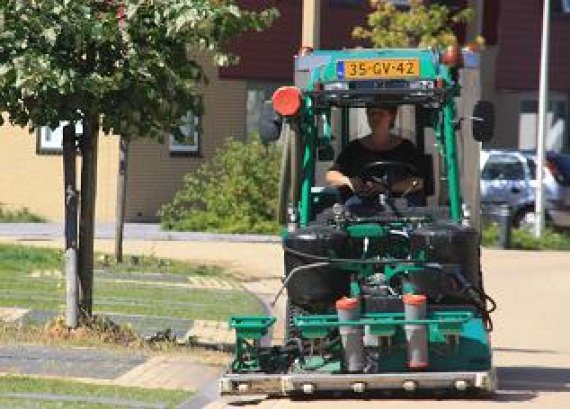*R*esearchers at Plant Research International and the University of Amsterdam have studied the most common techniques used to clear our pavements of weeds, and determined their impact on the environment. In addition to chemical herbicides, the methods include burning, steaming or brushing away the weeds. This comparison is highly relevant as the cabinet intends banning the professional and private use of herbicides on metalled surfaces. The researchers’ life cycle analysis (LCA) showed that this measure will not benefit the environment. On the contrary, the scientists give the chemical herbicides an LCA score of 0.3 to 0.5 while brushing scores between 2.8 and 7, and burning and hot air get scores of 7 to 12 points. The more points, the worse the impact on the environment. Chemical agents contaminate the water most due to their toxicity but brushing wears away the paving stones while burning and hot air treatments consume more fossil fuels. In addition, brushing is worst for public health, the hot water treatment creates most fine dust particles and burning the weeds has the biggest impact on the climate. None of the techniques scores lowest on all 17 environmental categories, but if you weight the categories and then add up all the scores, herbicides do indeed end up as the best option for the environment. The study, financed by the Ministry of Agriculture, can be found in the report ‘LCA quick scan comparing weed destruction methods’.
Spraying better for the environment than ‘environmentally friendly’ methods
Environmentally aware councils that want to remove the weeds growing between paving stones have stopped using chemical agents, but the 'environmentally friendly' alternatives now turn out to be worse for the environment.

